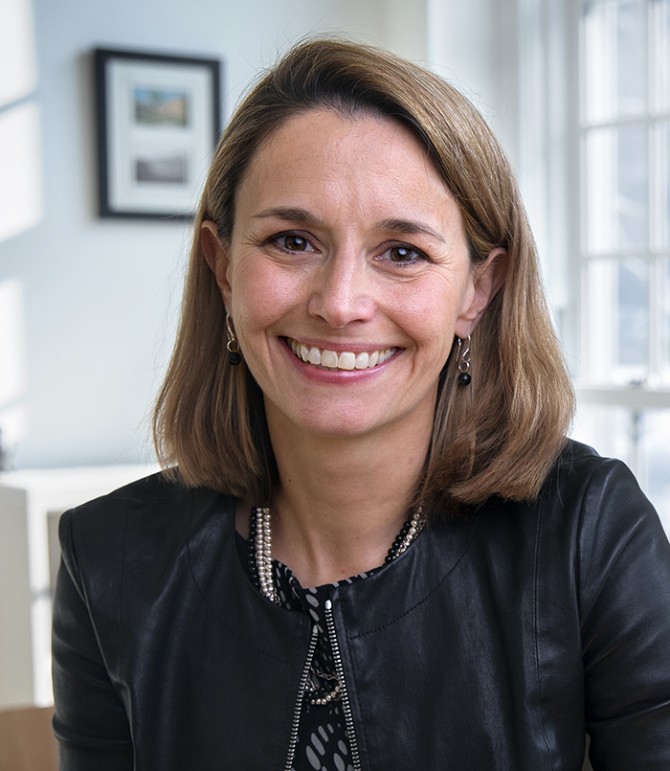New book looks at the ‘grandfamily’ phenomenon
By Stephen D'Angelo
Approximately 1.6 million American children live in what social scientists call “grandfamilies”– households in which children are being raised by their grandparents. A new book by Rachel Dunifon, interim dean of the College of Human Ecology and professor of policy analysis and management, examines this understudied family type, analyzing their unique strengths and distinct needs.
“You’ve Always Been There for Me: Understanding the Lives of Grandchildren Raised by Grandparents” contributes to the fields of family studies and gerontology, shedding new light on the dynamics in grandfamily households.
“My goal is to increase our understanding of an important, but less understood, type of family, and to ‘get under the roof’ of grandfamily households by using a multi-method approach to interviewing teenagers and the grandparents who are raising them,” Dunifon said.
Grandfamilies are largely hidden in American society, flying under the radar of social service agencies, policymakers and family researchers.
“From a research perspective, it is important to broaden our understanding of what we mean when we say ‘family’ and to acknowledge not only the diversity of different family types, but also the many strengths that can be found in various types of families,” she said. “From a policy and practice perspective, my hope is that we will better be able to develop policies and programs to support grandfamilies if we have a better understanding of what life is really like in such households.”
Dunifon traveled across New York state, with research collaborator and Senior Cornell Cooperative Extension Associate Kim Kopko, to interview families in which grandparents were raising grandchildren in New York City, smaller cities, suburbs and very rural communities.
Dunifon and her team worked closely with staff at community agencies throughout the research process, identifying topics to be examined, recruiting families, interpreting results, and using the results to inform current and ongoing programs for families.
“In the vast majority of the grandfamilies I interviewed, the grandparent had been raising the grandchild since a very early age and planned to do so indefinitely,” Dunifon said. “So grandparents are playing a crucial role in society by providing support, both financial and emotional, for their grandchildren.”
According to Dunifon, grandfamilies face financial strain due to not only raising a grandchild on a limited budget during years in which many grandparents are no longer working, but also a very high rate of health problems among both grandparents and grandchildren and repeated legal battles with the child’s parents.
A key takeaway, Dunifon said, is that grandfamilies have many strengths. In particular she noted the frequent and genuine expressions of love and appreciation that grandparents and grandchildren communicate to each other.
Grandparents are grateful for the opportunity to have such a special relationship with their grandchild, say that raising their grandchildren keeps them young, and feel that doing so also gives them a valuable sense of purpose, she said.
In turn, “grandchildren very clearly appreciate that their grandparents rescued them from a very challenging situation living in their parental home and that they provide them with unconditional love and support – as can be seen in the title, which is a quote from one of the teenagers I interviewed,” Dunifon said.
Dunifon’s research focuses on child and family policy, examining the ways in which policies, programs and family settings influence the development of less-advantaged children. She is co-director of Cornell Project 2GEN, which combines research, policy and practice to address the needs of vulnerable children and their parents. Recently, Dunifon and her colleagues were awarded the inaugural William T. Grant Foundation Institutional Challenge Grant for their project “Protecting Vulnerable Children and Families in the Crosshairs of the Opioid Epidemic: A Research-Practice Partnership.” She is the coauthor or coeditor of several books, including “Research for the Public Good.”
Stephen D’Angelo is assistant director of communications at the College of Human Ecology.
Media Contact
Get Cornell news delivered right to your inbox.
Subscribe

